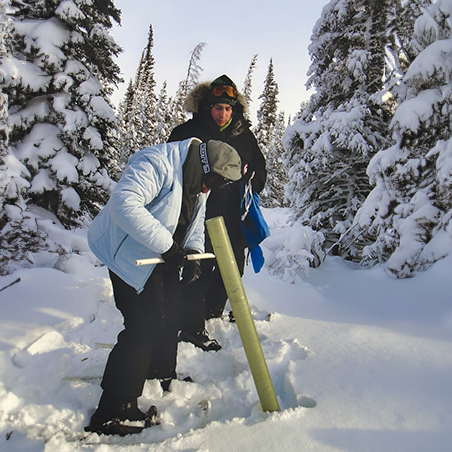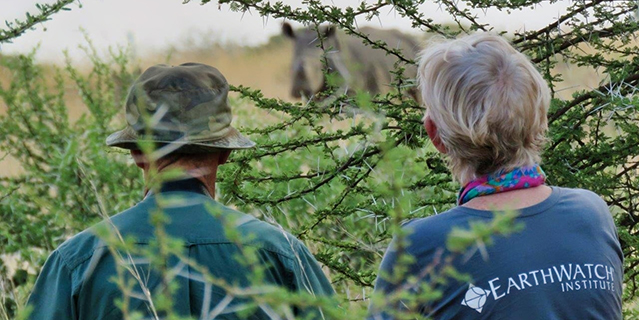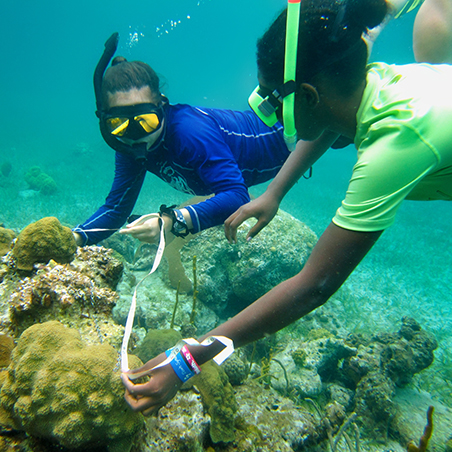Can travel and science unite for a positive impact?
Conservation travel, conscious travel, geotourism? What sets these apart?
As awareness of tourism's impact on the environment and local communities grows, more travelers are considering the effects of our own travel. Travel can be transformative for us and the places we visit. Yet travel trends are shifting as people reflect on the harm we may bring to the places we wish to support and admire.
The negative impacts of tourism are well documented, from activities that endanger delicate ecosystems and wildlife to development that harms local communities. As a response, more and more travelers are seeking authentic, immersive experiences that positively impact the local environment and communities.
Conservation travel, ecotourism, conscious travel, sustainable travel, and geotourism are some approaches that have emerged as alternatives to "traditional" tourism. So, what makes some of these travel approaches different?
What is conservation travel?
Conservation travel seeks to support wildlife, habitats, and local communities. At its core, this approach aims to leverage tourism to incentivize robust environmental protections. Conservation travel can encompass a range of activities, including travel that incorporates habitat restoration or wildlife monitoring. Conservation travel also seeks to strive towards greater sustainability and local community impact. What can this look like for travelers? Instead of enjoying any wildlife sightseeing tour, for instance, travelers may participate in projects that safeguard species and support local wildlife protections.
The case for alternative ways to travel
Similarly, other approaches seek to consider the region's people, wildlife, and habitats, as well as the impact of individuals during their travels. Geotourism centers on landscape and geology to foster conservation and education. Ecotourism seeks to consider all aspects of travel, including the environmental, economic, and social impact of accommodations and activities. Conscious travel, sometimes called slow or ethical travel, prioritizes immersive experiences focusing more on a deeper appreciation of people, culture, and nature. Regardless of how you label it, there's a significant potential for a positive impact when we are intentional about how we travel.
Truly an eye-opening and humbling experience...The expedition took us through the wide range of issues facing chimps while showing that these dangers affect humans as much as any other part of the ecosystem.
— John Kokko, participant on our Investigating Threats to Chimps in Uganda expedition.



Combining travel with science and conservation for outsized impact
Since our founding in 1971, Earthwatch has empowered people to protect our planet through a model of participatory science. Our expeditions combine volunteering with travel to amplify the output of research and conservation projects worldwide.
During Earthwatch expeditions, participants gain a deeper appreciation for nature and wildlife. Not only that, they contribute to data collection and conservation strategies first-hand. Earthwatch volunteers often share that besides enjoying unique immersive experiences, they return home with a renewed sense of responsibility and optimism about environmental preservation.
For some participants, it is their first time interacting with nature and wildlife up close. The experience gives them the perspective to understand what is at stake and feel empowered to take action.
Supporting the project's biologists in their efforts to save leatherback turtles from extinction was one of the most challenging, yet learning-filled and rewarding experiences I have had.
— Ann Coles, participant on our Costa Rican Sea Turtles expedition.
More than tourism: Connecting people with science to protect our planet
Guided by the UN Sustainable Development Goals, our expeditions focus on protecting wildlife, biodiversity, ocean ecosystems, and sustainable communities. While the impact of Earthwatch expeditions is vast, from discovering new species to informing legislation and environmental protections, people continue to be at the center of our mission.
Thanks to our participants' willingness to step outside their comfort zones and experience a different type of travel through volunteering, we can support scientists worldwide. On average, Earthwatch volunteers contribute nearly 100,000 hours of field research annually.
This project gives the opportunity to witness Costa Rica's amazing diversity and conservation practices, working with and meeting inspiring scientists, guides, and farmers.
— Ranee Duncan, participant on our Conserving Wild Bees and Other Pollinators of Costa Rica expedition.
How can travelers support conservation through volunteer expeditions?
During each expedition, scientists guide participants to support a variety of data collection, conservation, or reforestation activities. These activities range from monitoring coral reefs to tagging and measuring wildlife, planting seedlings, removing invasive species, evaluating the effects of climate change, and more.
Amanda Konen-Port, who joined our Amazon Riverboat Expedition in 2024, summarized it best: "While seeing the wildlife in their element and walking through the miracle that is the Amazon jungle was incredible, what really moved me about this project was hearing from lead scientist Dr. Bodmer about the positive results it has yielded over its years of being conducted."
We spent our days collecting data on populations of shore birds, river dolphins, fish, macaws and parrots, bats, frogs, and jungle mammals. That data is in turn used by Peruvian government entities such as the Peruvian Wildlife and Forestry Service to make decisions on issues such as subsistence hunting by Indigenous communities of the region...In short, this project gave me hope for our planet and filled me with pride to be a small part of something so huge...This project reminded me that regular people can make a difference and have an impact, and that was a reminder I desperately needed.
At Earthwatch, we believe travel can catalyze scientific and environmental progress.
Want to see what you can discover during an Earthwatch expedition?
Join an Earthwatch expedition!
Sign up for the Earthwatch Newsletter
Be the first to know about new expeditions, stories from the field, and exciting Earthwatch news.
.
.
.